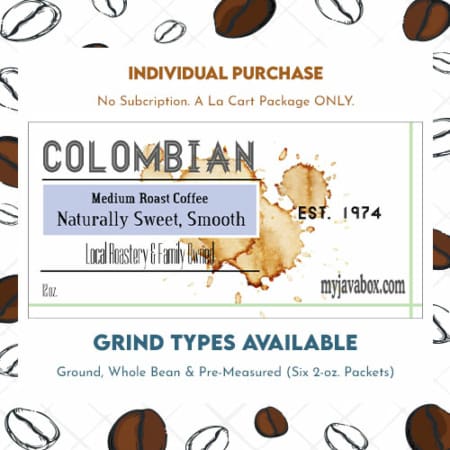Description
Colombian coffee is renowned worldwide for its exceptional quality, rich flavor, and distinct aroma. It is one of the most well-known and highly regarded coffee varieties globally, contributing significantly to Colombia’s economy and cultural identity.
The unique characteristics of Colombian coffee can be attributed to a combination of factors such as the country’s diverse geography, ideal climate, and the dedication of local farmers to producing high-quality beans. The coffee is predominantly grown in the central and western parts of Colombia, particularly in the regions of Antioquia, Huila, Tolima, and Nariño.
Key features of Colombian coffee include:
- Flavor Profile: Colombian coffee is often described as having a well-balanced flavor with a mild to medium body. It exhibits a smooth and clean taste, with notes of sweetness and a pleasant acidity. The flavor can vary depending on the specific region and altitude in which the coffee is grown.
- Aroma: The aroma of Colombian coffee is captivating and distinct, often characterized by a mix of floral, fruity, and nutty notes. The scent is intense and inviting, making it a delightful experience for coffee enthusiasts.
- Acidity: Colombian coffee is known for its bright acidity, which adds a lively and refreshing quality to the cup. This acidity enhances the overall flavor profile and contributes to the coffee’s complexity.
- Balance: One of the defining qualities of Colombian coffee is its harmonious balance between acidity, body, and flavor. This balance makes it a versatile choice that appeals to a wide range of coffee preferences.
- Growing Conditions: The diverse landscapes and microclimates in Colombia provide an ideal environment for growing coffee. The coffee plants thrive at various altitudes, with each elevation contributing distinct characteristics to the beans. High altitudes tend to produce beans with more pronounced acidity and complexity.
- Processing Methods: Colombian coffee is often meticulously processed using methods like washed or wet processing. This approach involves removing the outer layers of the coffee cherry before drying the beans. This attention to detail during processing helps maintain the coffee’s clean and consistent taste.
- Single Origin: Colombian coffee is often marketed as a single-origin product, meaning it comes from a specific region within Colombia. This allows consumers to appreciate the unique flavors and aromas associated with different growing areas.
- Cultural Significance: Coffee production has deep cultural roots in Colombia. Many Colombian families have been involved in coffee farming for generations, and the coffee industry plays a crucial role in the country’s economy and social fabric.
Due to its reputation for quality and the distinct characteristics it embodies, Colombian coffee holds a special place in the hearts of coffee enthusiasts worldwide. Whether enjoyed as a simple cup of black coffee or used in more elaborate preparations, Colombian coffee offers a delightful and memorable sensory experience.








